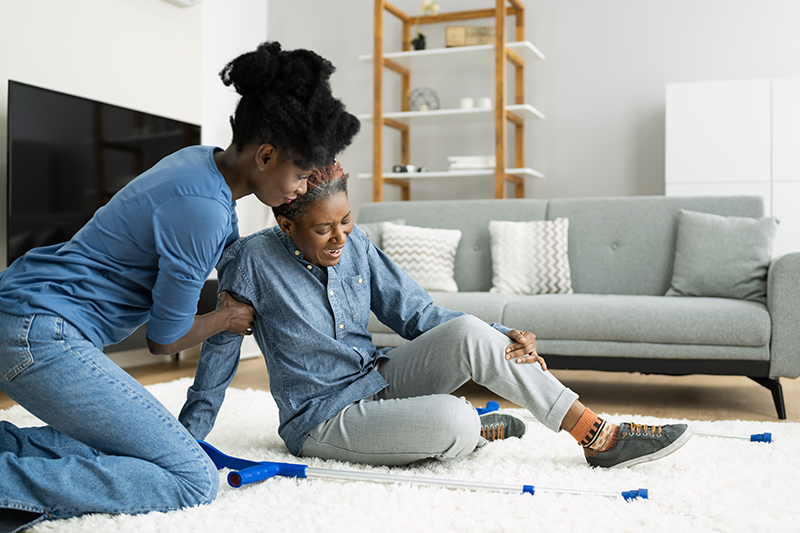
When Falls Happen
Falls are a serious risk factor for injury in older adults and those with Parkinson’s are at a higher risk for falling than others. Although we never want it to happen, we need to be prepared.
If a fall occurs, please stay calm and assess yourself before trying to move. Lie still, catch your breath, wiggle you fingers and toes, and see if anything hurts. If everything seems ok, then proceed to get up slowly.
**If you have trouble with any of the above, a call to 911 for “falls assist” if necessary.
- Rest, relax and take a deep breath
- Assess if you are hurt
- Yell for help or call for help if you have your phone
- Get up if you are ok, roll to one side, get to hands and knees, crawl to a sturdy chair or something to help you up.
- Sit in case of dizziness
- Make sure to let someone know you have fallen
**Sometimes you don’t know that you are hurt right away. If you have fallen and hit your head and then notice later you are sleeping more or not eating, you should talk with a caregiver or family member.
Things to do to at home to help reduce fall risks:
- Remove all throw rugs.
- Have a bathmat or non-slip stickers on the surface of your tub/shower.
- Safety bars in the bathroom (shower) are helpful.
- Hand railings on stairs are helpful.
- Have nightlights in hallways, bedrooms, bathrooms to improve vision at night if you get up frequently.
- Wearing proper, supportive footwear when moving about uneven surfaces (gravel, grass, mulch outside).
- Decrease the amount of clutter you have in your home and hallways.
- Icy steps and driveways/parking lots are always a risk.
- Make sure any extension cords, wires, etc are not out in the open, as they could be a tripping hazard.
- Always have your cell phone on you, especially if you live alone, in case of a fall you have someone to call.
- Make sure spills are cleaned up immediately.
- Be careful leaning over to wipe or pick up things.
- If you have been advised by a medical professional to use an assistive device such as a walker or cane, make sure you are using it appropriately.
- If you have a sudden increase in the frequency of falling, make sure to talk to your doctor or another medical professional to see if a medication adjustment might help or if you might benefit from physical therapy to work on your balance.
- If you get dizzy when standing up, stand for a few minutes before taking any steps and wait for the dizziness to subside. (Folks with PD are sometimes more prone to orthostatic hypotension-in which blood pressure can drop upon standing/change in posture-which can cause dizziness and make them more prone to falls/losing balance)

